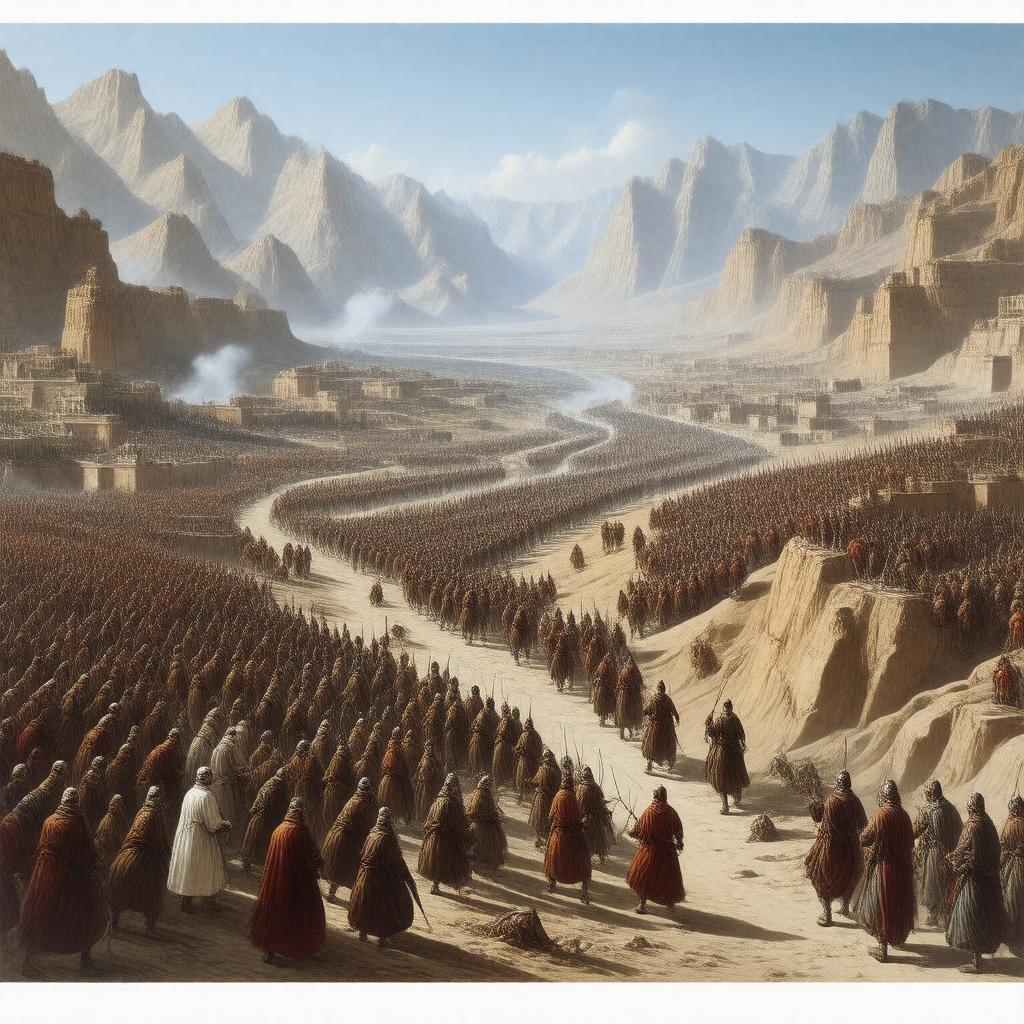Prompt
"Depict a panoramic view of the Battle of Uhud, a pivotal battle in Islamic history, which took place on 23 March 625 CE near Medina, Hejaz, Arabia. Show the rugged terrain of Mount Uhud with Muslim and Quraysh armies clashing in the valley below. Include the notable figures such as Muhammad, Abu Sufyan ibn Harb, Hamza ibn Abdul-Muttalib, Khalid ibn al-Walid, Ali ibn Abi Talib, and Hind bint Utbah in their respective positions on the battlefield. Capture the intensity of the battle with arrows flying through the air and soldiers charging at each other. In the foreground, depict some Muslim archers abandoning their posts, while in the background, show the Meccan cavalry led by Khalid ibn al-Walid breaking through the Muslim lines. Incorporate a sense of drama and chaos, highlighting the turning point of the battle where the Meccans gain the upper hand, but ultimately fail to capture Medina. Render the scene in a realistic and historically-inspired style, with attention to the attire, armor, and equipment of the warriors, as well as the landscape of the region."

